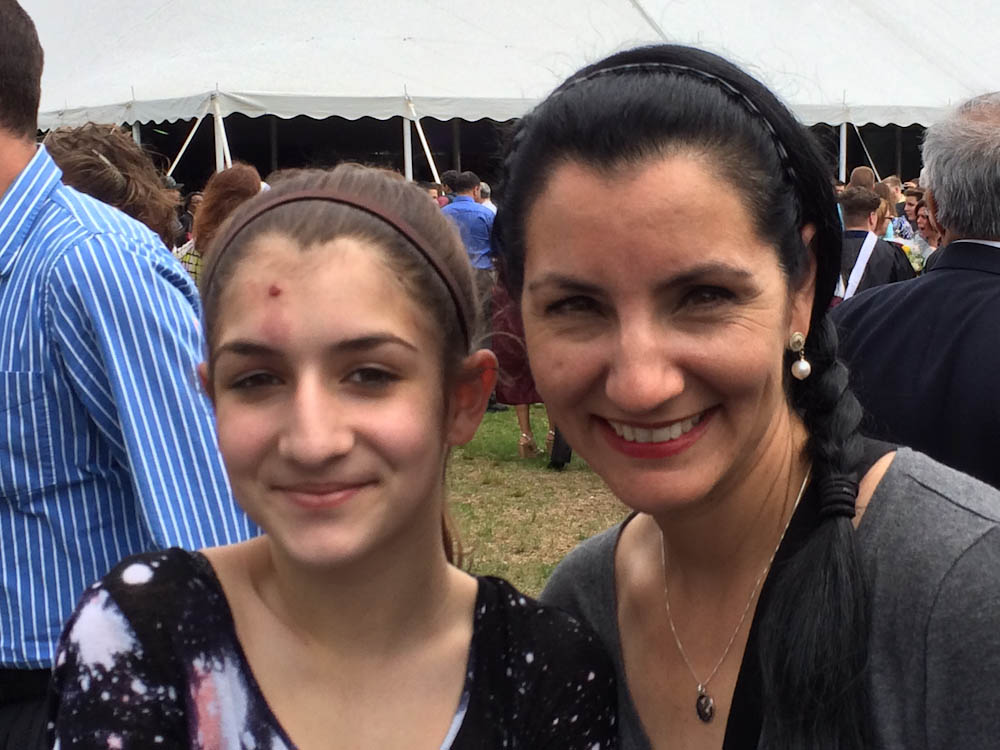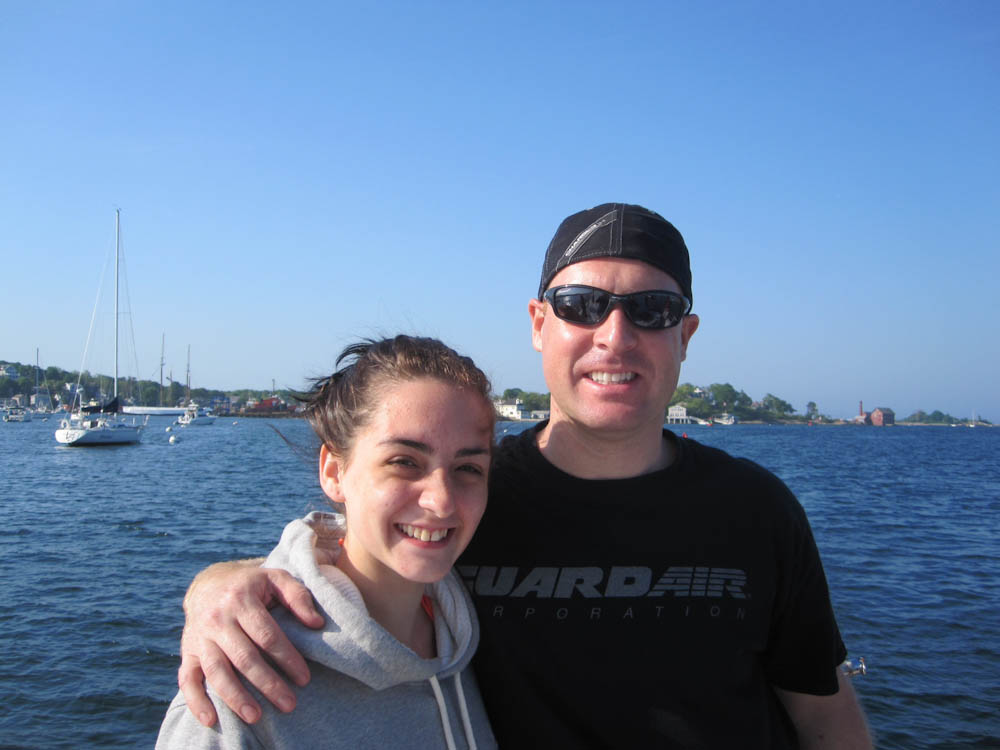By Jenn Perry

When I was diagnosed with breast cancer at 36, it was like déjà vu for my family. My mother had been diagnosed with the same disease at the same age, while pregnant with her third child. I learned I had breast cancer just six months after giving birth to my second daughter.
My aunt also battled the disease, and my younger sister was diagnosed with a breast cancer very similar to the hormone-sensitive type I have. Although my sisters and I have been proactive about breast cancer screenings from a young age, genetic testing never crossed our minds.
I was introduced to the world of genetic counseling after seeking a second opinion at Dana-Farber. Because my mother passed away at such a young age (she was 44), my physician encouraged me to speak with a counselor about my family history and the possibility of being tested for gene mutations that increase the risk of cancer. My sisters and I gathered as much information about our family history as possible, including my mother’s medical records. Being prepared was really important; the more information you give the genetic counselors, the more they can help you.
All the information pointed to a possible link, so we decided to undergo testing. My younger sister and I were found to have Li-Fraumeni syndrome, a rare, inherited predisposition to multiple cancers. The syndrome also increases the risk of developing cancer in areas that have been treated with radiation therapy.
My older sister, who also has breast cancer, tested negative for the syndrome. After my father tested negative as well, the puzzle pieces came together. Although we couldn’t test her to be sure, my mother must have had Li-Fraumeni. She had passed away after being diagnosed with a radiation-induced sarcoma.
I don’t know where I would be today if I hadn’t had the genetic testing. With this information, I could look at the whole picture and know my options. I avoided radiation and underwent a double mastectomy and a hysterectomy.

The genetic counseling also helped me understand the importance of having my 11-year-old and 21-year-old daughters tested. I’m hoping that the results will help them be the safest they can be.
I’ve always felt that knowledge is power, and I like to face important decisions head-on. Knowing I have Li-Fraumeni allows me to make informed decisions about treatment and helps me live a healthier life. I can only hope this knowledge will allow my own daughters to do the same.
For more information on genetic counseling and testing, visit the website for Dana-Farber’s Center for Cancer Genetics and Prevention.
